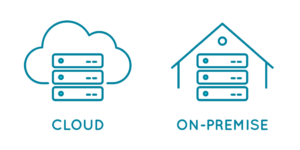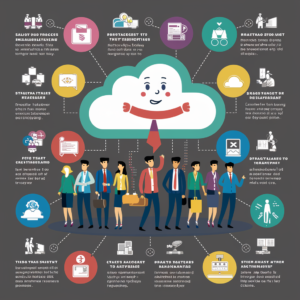Introduction:
The adoption of cloud computing has revolutionized the way organizations develop, deploy, and manage their software applications. DevOps practices, which emphasize collaboration, automation, and continuous delivery, are at the forefront of this transformation. Cloud providers like AWS (Amazon Web Services), Azure (Microsoft Azure), and GCP (Google Cloud Platform) offer a wide range of services and tools to support DevOps workflows and accelerate software delivery. In this article, we’ll explore how organizations can leverage AWS, Azure, or GCP to implement DevOps practices effectively.
Understanding DevOps in the Cloud: DevOps is a cultural and organizational mindset that aims to break down silos between development and operations teams, enabling seamless collaboration and faster delivery of software. In the context of cloud computing, DevOps practices are tightly integrated with cloud services and technologies, allowing organizations to automate infrastructure provisioning, deployment pipelines, and monitoring workflows.
- Infrastructure as Code (IaC): Infrastructure as Code (IaC) is a key tenet of DevOps in the cloud, enabling teams to define and provision infrastructure resources using code. AWS, Azure, and GCP offer services like AWS CloudFormation, Azure Resource Manager (ARM), and Google Cloud Deployment Manager, which allow developers to declaratively define infrastructure components using YAML or JSON templates. By treating infrastructure as code, organizations can automate the provisioning and configuration of cloud resources, ensuring consistency and reproducibility across environments.
- Continuous Integration and Continuous Deployment (CI/CD): CI/CD pipelines are fundamental to DevOps practices, enabling organizations to automate the process of building, testing, and deploying software applications. Cloud providers offer a variety of services and tools to support CI/CD workflows, including AWS CodePipeline, Azure DevOps, and Google Cloud Build. These services allow teams to define automated pipelines that integrate with version control systems, trigger builds on code changes, run tests in parallel, and deploy applications to production environments seamlessly.
- Monitoring and Observability: Effective monitoring and observability are essential for identifying and resolving issues in real-time, ensuring the reliability and performance of cloud-based applications. AWS CloudWatch, Azure Monitor, and Google Cloud Monitoring are monitoring services provided by AWS, Azure, and GCP, respectively. These services offer features like metric collection, log aggregation, and anomaly detection, allowing teams to gain insights into application health and performance. Additionally, cloud providers offer integration with third-party monitoring tools and services, enabling organizations to build comprehensive observability solutions tailored to their needs.
- Security and Compliance: Security is paramount in cloud environments, and DevOps practices play a crucial role in ensuring the security and compliance of cloud-based applications. AWS, Azure, and GCP provide a wide range of security services and features, including identity and access management (IAM), encryption, network security, and compliance certifications. DevOps teams can leverage these services to implement security best practices such as least privilege access, encryption at rest and in transit, and automated compliance checks, thereby reducing the risk of security breaches and ensuring regulatory compliance.
Choosing the Right Cloud Provider: When it comes to selecting a cloud provider for DevOps initiatives, organizations should consider factors such as service offerings, pricing, geographic availability, ecosystem integration, and vendor support. AWS, Azure, and GCP each have their strengths and weaknesses, and the choice ultimately depends on the specific requirements and priorities of the organization.
Conclusion:
DevOps in the cloud offers organizations the opportunity to streamline software delivery, improve collaboration, and enhance agility and innovation. By leveraging the services and tools provided by AWS, Azure, or GCP, organizations can implement DevOps practices effectively, automate repetitive tasks, and focus on delivering value to customers. Whether it’s infrastructure as code, CI/CD pipelines, monitoring and observability, or security and compliance, cloud providers offer a rich set of capabilities to support DevOps initiatives and drive digital transformation in the cloud.





